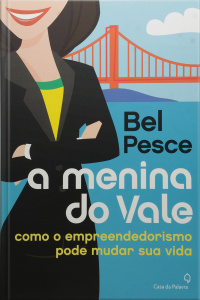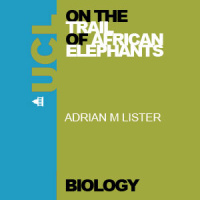Best Of Natural History Radio
- Autor: Vários
- Narrador: Vários
- Editor: Podcast
- Duración: 147:19:52
- Mas informaciones
Informações:
Sinopsis
The BBC Natural History Unit produces a wide range of programmes that aim to immerse a listener in the wonder, surprise and importance that nature has to offer.
Episodios
-
Would You Eat an Alien? - Emotional Aliens
16/12/2015 Duración: 27minIn this four part series Christine Nicol, professor of Animal Welfare at the University of Bristol, explores the fascinating and challenging subject of animal sentience and welfare. To help delve into the nuances we set up an intriguing scenario: Jake the Spacemen (aka comedian Jake Yapp) has crash-landed on a remote planet and doesn't have much food to keep him going until he is rescued. Fortunately, the planet is teeming with alien life forms that are edible, but which ones should he eat? He wants to cause the minimum amount of pain and distress to the creatures, so what does he need to know about the nature of the beings on the planet? Can they feel pain? If so, how can he minimise suffering? Will eating an alien cause distress to others? Is the alien so aware and sensitive to its environment that Jake needs to consider whether it is a non-human person? Christine will interview animal welfare scientists, philosophers and wildlife biologists to get under the skin of animal sentience and the potential c
-
Would You Eat an Alien? - Pain or No Pain
09/12/2015 Duración: 27minIn this four part series Christine Nicol, professor of Animal Welfare at the University of Bristol, explores the fascinating and challenging subject of animal sentience and welfare. To help delve into the nuances we set up an intriguing scenario: Jake the Spacemen (aka comedian Jake Yapp) has crash-landed on a remote planet and doesn't have much food to keep him going until he is rescued. Fortunately, the planet is teeming with alien life forms that are edible, but which ones should he eat? He wants to cause the minimum amount of pain and distress to the creatures, so what does he need to know about the nature of the beings on the planet? Can they feel pain? If so, how can he minimise suffering? Will eating an alien cause distress to others? Is the alien so aware and sensitive to its environment that Jake needs to consider whether it is a non-human person? Christine will interview animal welfare scientists, philosophers and wildlife biologists to get under the skin of animal sentience and the potential c
-
3D Bio-Printing
07/04/2015 Duración: 27minPresenter Howard Stableford investigates whether 3D printing can bring real benefit to the natural world. Along the way he discovers a 3D printed reef structure and scientific applications. With species extinction in the natural world a reality, Howard then asks the bigger question: are we near the point when we could reproduce a living species? Producer: Andrew Dawes
-
Soundstage - Dawn Chorus
27/03/2015 Duración: 13minWildlife sound recordist Chris Watson introduces the sounds of a dawn chorus recorded near Aldeburgh in Suffolk in the last in this series of immersive soundscapes. Produced by Sarah Blunt
-
Soundstage - Glacial Melt
26/03/2015 Duración: 13minThe extraordinary and powerful sounds of a glacier calving are captured by wildlife sound recordist, Chris Watson in this immersive soundscape. Produced by Sarah Blunt
-
Soundstage - The Wash
25/03/2015 Duración: 13minWildlife sound recordist Chris Watson introduces the extraordinary sounds which accompany the movement of the tides on the Wash, in this series of immersive soundscapes. Produced by Sarah Blunt
-
Soundstage - St James' Park
24/03/2015 Duración: 13minWildlife sound recordist Chris Watson introduces the sounds of the city on Match Day in Newcastle upon Tyne in the second in a series of immersive soundscapes. Produced by Sarah Blunt
-
Soundstage - Midnight at the oasis
23/03/2015 Duración: 13minWildlife sound recordist Chris Watson narrates the first in a series of audio postcards capturing spectacular wild sound events, beginning in the Kalahari desert. Produced by Sarah Blunt
-
Living World - Dabbling Ducks, 1st March '15
01/03/2015 Duración: 21minIn winter, the UK's estuaries and wetlands play host to many species of 'dabbling,' or surface feeding, ducks. Chris Sperring visits the Wildfowl and Wetlands Trust reserve at Slimbridge in Gloucestershire to find out more about them.
-
Living World, Giant Fungus
22/02/2015 Duración: 21minChris Sperring and Michael Jordan of the Association of British Fungus Groups go in search of giant bracket fungus in Dommett Wood in Somerset. Bracket fungus grow on a variety of native trees. The vegetative part of the fungus, known as mycelium, grows under the bark of fallen wood or living trees, and will eventually break down and rot the host tree. However, the part that can most easily be seen is the fruiting body of bracket fungus. These fruiting bodies, growing on tree trunks and fallen logs, allow the fungus to reproduce and exist to produce and liberate millions of microscopic spores.
-
The Living World: Wood Mice of Wytham
15/02/2015 Duración: 21minIn the company of Marc Brouard and Nigel Fisher, Conservator of Wytham Woods, Trai Anfield hears how these small mammals have a vital role to play in the ecology of the woodland. Wytham Woods, is reputedly, the most studied woodland in World. Marc Brouard is the latest in a long line of scientific researchers to undertake field studies on small mammals. In 1943 Charles Elton, known as 'the father of modern ecology', studied wood mice and bank voles and his work was followed up by H.N. Southern who examined the impact of predation by tawny owls on populations of small mammals. Marc aims to understand how the characteristics of individual wood mice and bank voles can affect the survival of each species.
-
The Cliff, Ep4
12/02/2015 Duración: 13minMartin Palmer, Secretary General of The Alliance of Religions and Conservation reflects on the spiritual responses evoked by cliffs in religious stories and traditions.
-
The Cliff, Ep3
11/02/2015 Duración: 13minGeologist Zoe Shipton explains how cliffs can be read like books to reveal the geological history of the earth.
-
The Cliff, Ep2
10/02/2015 Duración: 13minSkellig Michael or Great Skellig is the larger of the two Skellig islands situated some 12km off the coast of Portmagee in south west Ireland. It’s a spectacular rocky pinnacle towering over 200 metres above sea level. Illustrated with recordings he made on location, wildlife sound recordist Chris Watson recalls his ascent of Skellig Michael.
-
The Cliff, Ep1
09/02/2015 Duración: 13minAlan Read, Professor of Theatre at Kings College London explores the Dreadful Trade on Shakespeare’s Cliff in the first of a new series about our relationship with Cliffs.
-
Living World - Winter Seashore
08/02/2015 Duración: 21minTrai Anfield visits a wintry Bovisand Bay in South Devon in the company of Keith Hiscock, Associate Fellow of the Marine Biological Association. They rummage amongst the storm strewn seaweed making up the strand line at the top of the beach. It is here that insects and crustaceans flourish in the food rich and clement micro world, in turn drawing in birds like wagtails and turn stones. Down in the inter-tidal zone, along with finding a host of marine molluscs are the excitingly named volcano barnacles and beautifully coloured beadlet anenomies.
-
An Image of Sound
07/02/2015 Duración: 14minPhotographer Andrew Heptinstall goes on a quest to represent sound within a photographic image, which takes him from the camera, into the mind and back again.
-
The Living World - Spined Loach
01/02/2015 Duración: 21minThe spined loach is a small freshwater fish that spends most of the time buried in the silt of riverbeds. It is believed be in the UK as a result of the melting from the last Ice Age when the UK was connect to Europe. After the Ice Age rescinded, the ocean water levels increased for a time before decreasing enough to essentially separating some of the species from the rest that live in Europe. Brett Westwood joins Environment Agency Fisheries Officer Andy Beal and his team conducting a survey of this secretive and rare animal at Morton's Leam; a 15th Century river artificial course of the River Nene in Cambridgeshire. Produced by Jamie Merritt
-
Shared Planet - Natural Symbols 20 Jan '14
20/01/2015 Duración: 27minThe final programme in the series recorded in the Natural History Museum in London. Four experts from different fields chose an object that symbolises our relationship with nature.
-
The Diaries of Brett Westwood: Canal - 16 Jan '15
16/01/2015 Duración: 13minWhen Brett Westwood began a wildlife diary at the age of 15, little did he think that he'd still be writing notes, nearly 40 years later about the same local patch in North Worcestershire. The River Stour has its source in the industrial Black Country and flows through Brett's local patch on its way to the Severn, about 9 miles away. Today, although it is polluted, the river is far clearer than in years gone by, thanks to rigorous controls on pollutants. With their absence, fish have returned and damselflies such as the white-legged damsel which is sensitive to pollution, skim across the surface.










